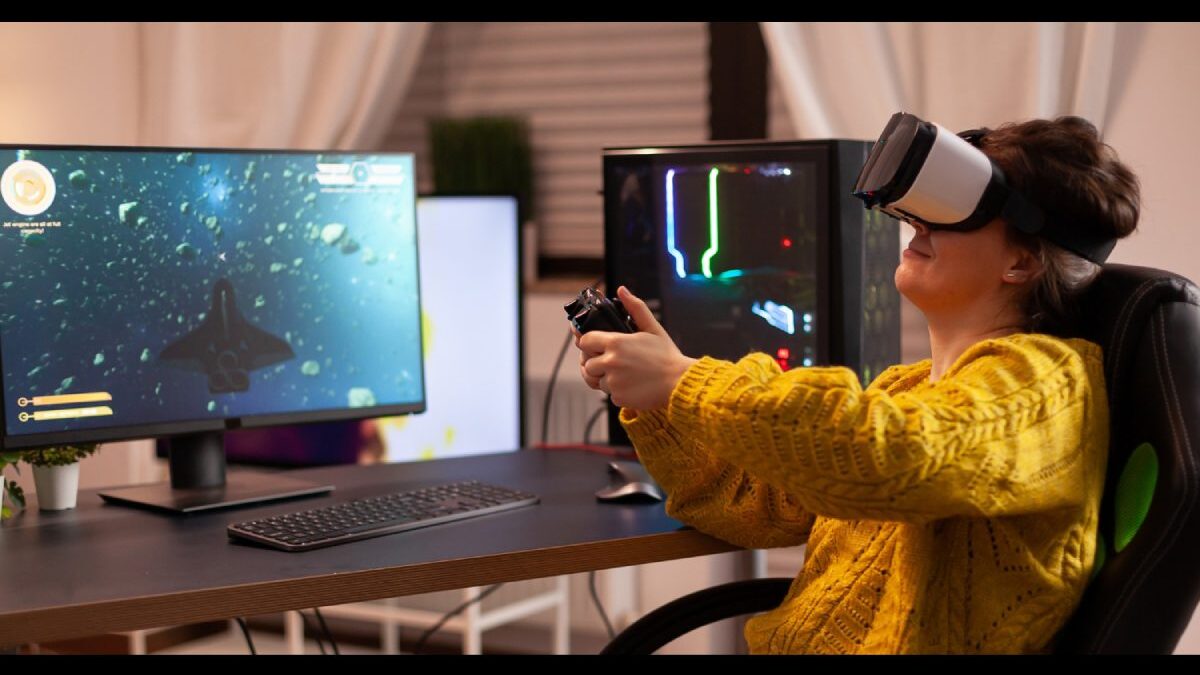Top 7 AI Trends Revolutionizing the Gaming Industry
Artificial Intelligence (AI) is changing the way we play, design, and experience games. From smarter NPCs to personalized user experiences, AI is at the center of some of the most exciting innovations in the gaming world.
Whether you’re a casual player or a game developer, understanding how AI is shaping gaming can give you valuable insight into where the industry is heading. Some platforms, like Highroller, a reward-based gaming mechanics, are already integrating these trends into their user experiences — making play more engaging, interactive, and tailored to the user.
Here are the top 7 AI trends that are currently revolutionizing the gaming industry.
Table of Contents
1. AI-Driven Personalization in Gameplay
Modern games are no longer one-size-fits-all. With the help of machine learning, AI can now track user behavior and adapt the gaming experience in real time. Everything from difficulty level to in-game rewards can be adjusted based on how you play.
This trend allows for:
- Personalized quests
- Adjusted challenge levels
- Dynamic narrative paths
By studying play patterns, AI creates more engaging and immersive experiences that keep players coming back.
2. Smarter Non-Playable Characters (NPCs)
Gone are the days of repetitive NPC dialogue and predictable behavior. AI now enables NPCs to learn and respond to player actions in more complex ways. This leads to:
- Realistic in-game conversations
- Adaptive enemy strategies
- Richer storytelling
Smarter NPCs improve immersion and make gameplay feel more like a living, evolving world.
3. AI-Powered Procedural Content Generation
Procedural content generation isn’t new, but AI is pushing it further. Using algorithms, developers can create vast environments, quests, and storylines that are never exactly the same twice.
Benefits include:
- Infinite map and level variations
- Reduced manual labor in content creation
- Unique player journeys every session
This technique is widely used in open-world games and rogue-likes, providing nearly endless replayability.
4. Real-Time Voice and Emotion Recognition
AI is now being trained to recognize voice tone and even facial expressions through webcam input. While still developing, this trend has big implications for:
- Emotionally responsive NPCs
- Real-time voice-based gameplay controls
- Personalized user feedback and coaching
This tech is especially powerful in multiplayer or social-based games where communication is key.
5. AI Moderation for Online Communities
Toxic behavior in online gaming communities has been a long-standing issue. AI-powered moderation tools are now stepping in to help manage this.
These tools can:
- Automatically detect offensive language or behavior
- Analyze chat patterns to identify abuse
- Issue warnings or bans in real time
This trend is improving the gaming experience for players of all ages and backgrounds, making online spaces safer and more inclusive.
A recent study by Stanford’s Institute for Human-Centered Artificial Intelligence (HAI) highlights how these AI systems are being trained to handle nuance and context — a major advancement over earlier models.
6. Game Testing and Development Automation
AI is not just changing how we play — it’s also transforming how games are built and tested.
Game developers now use AI tools for:
- Automated bug detection
- Playtesting simulations
- Balancing game mechanics
These tools dramatically reduce development time and improve the final product’s quality. Developers can simulate thousands of user sessions in minutes, gathering data that would take weeks to collect manually.
7. Dynamic In-Game Economy Modeling
In games that feature shops, trade, or reward systems, managing a fair and engaging economy is a huge challenge. AI can now model these systems dynamically, using real-time player behavior to adjust:
- Coin generation rates
- Prize availability
- Progression pacing
This ensures that the in-game economy feels balanced — encouraging continued play without overwhelming the player or breaking the reward structure.
Platforms that use reward-based mechanics, like Highroller, benefit from AI to maintain a satisfying balance between progression and prize opportunities.
Final Thoughts
AI in gaming is evolving rapidly — and it’s only just getting started. From adaptive storytelling to smarter moderation, these trends are pushing the boundaries of what’s possible in digital entertainment. As AI tools become more sophisticated, players can expect more responsive, personalized, and meaningful gaming experiences.
For game creators and platforms alike, adopting AI isn’t just a competitive advantage — it’s quickly becoming a necessity.

